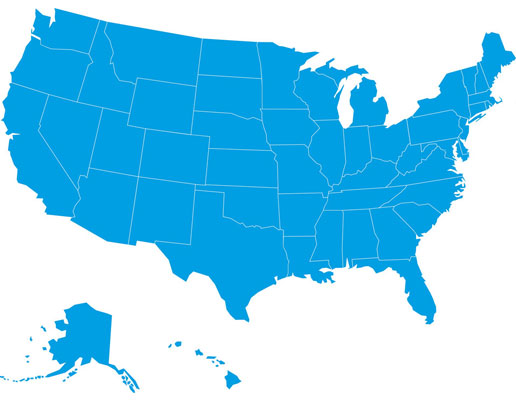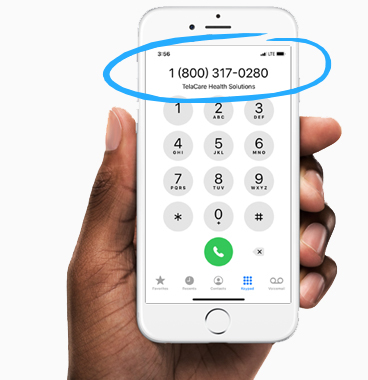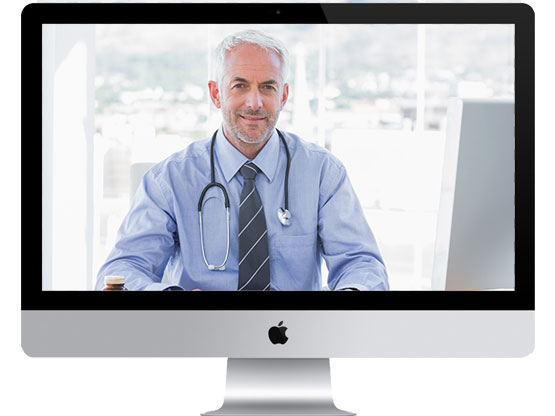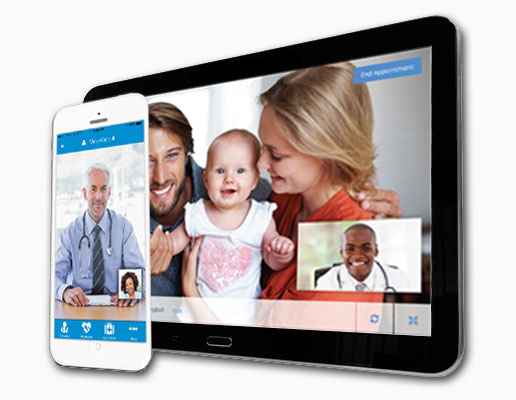Coronavirus Information and Self-Assessment Center
U.S. health authorities recommend that people be prepared for the possibility of a COVID-19 outbreak in their community.
Per the CDC, “Reported community spread of COVID-19 in parts of the United States raises the level of concern about the immediate threat for COVID-19 for those communities. The potential public health threat posed by COVID-19 is very high, to the United States and globally.”
You and your family’s health are always our priority. We’re here to help you stay safe and help you get the care and information you need.
Get the most-current information from the CDC
Coronavirus: What you need to know to stay prepared
The Coronavirus disease 2019 (COVID-19) is a respiratory illness that can spread from person to person. The virus that causes COVID-19 is a novel coronavirus that was first identified during an investigation into an outbreak in Wuhan, China.
Do I have COVID-19 or something else? Before you call, take our Coronavirus Self-Assessment to determine what course of care you need.
WHAT IS THE CORONAVIRUS?
COVID-19 is a respiratory illness caused by a coronavirus that was first identified in China. It is contagious and includes symptoms like fever, cough, and shortness of breath.
HOW DOES THE VIRUS SPREAD?
The virus is airborne and spreads from person to person through coughing and sneezing. It can also be spread through infected surfaces or objects. You may be at greater risk if you have recently lived in or traveled to regions where there are current outbreaks or if you come into contact with someone who has the virus.
EFFECTIVE WAYS TO PROTECT YOURSELF
Wash your hands frequently and for at least 20 seconds, Maintain social distance, Avoid touching eyes, nose, and mouth, If you have fever, cough, and difficulty breathing, seek medical care

What's the difference between COVID-19, cold, and flu?
- Fever
- Cough
- Shortness of breath
- Sore throat
- Runny/stuffy nose
- Body aches
- Chills
- Headache
- Fatigue
- Vomiting/diarrhea
- Sneezing
- YES
- YES
- YES
- NO
- NO
- NO
- NO
- NO
- NO
- NO
- NO
- YES
- YES
- NO
- YES
- YES
- YES
- YES
- YES
- YES
- YES
- NO
- Request Consult
- NO
- YES
- NO
- YES
- YES
- NO
- NO
- NO
- NO
- NO
- YES
- Request Consult
Coronavirus Consults
We know you may have concerns, and we’re here for you. If you think you’ve been exposed, our doctors are available 24/7 over video to help evaluate your risk and help determine your next steps.
Steps to take to avoid coronavirus
COMMON CORONAVIRUS (COVID-19) FAQ's
As the COVID-19 outbreak unfolds, our commitment to providing high-quality care has never been more important. Virtual care is recommended by the CDC as the way to get care and help avoid exposure and spread of potentially contagious viruses. In these unpredictable times, our doctors are here for you 24/7, working tirelessly to assure that your questions are answered and your needs are resolved. We appreciate your patience during this time.
If you’re experiencing allergy or flu-like symptoms and are concerned, contact your primary care doctor or TelaCare as soon as possible. When you call TelaCare, a U.S. board-certified physician will talk with you over the phone or online about your symptoms, recent contact with anyone who may have been infected with the virus, recent travel, and if you are in a high-risk occupation like healthcare worker. You don’t have to leave the comfort of your home and risk exposure because our doctors can evaluate your risk and make a medical assessment. If we identify another type of illness or infection, we can provide treatment or symptom relief so you can feel better. Reach out to us 24/7 through your phone, the mobile app, or online.
For those with weakened or compromised immune systems or older adults and individuals with chronic medical conditions (e.g., diabetes, heart disease, receiving immunosuppressive medications, chronic lung disease, or chronic kidney disease) should call their healthcare provider if they have any allergy, flu-like, or coronavirus symptoms.
Keep in mind that there is no treatment for COVID-19, and people who are mildly ill may be able to isolate and care for themselves at home.
If you have a fever or feel feverish, have cold-like symptoms or flu-like symptoms, or feel run-down, you should call TelaCare. A doctor will get to your call as soon as possible. If you are experiencing shortness of breath or difficulty breathing, then you should call your local doctor’s office to request an in-person visit. Shortness of breath–having trouble breathing–is a more severe symptom that requires an in-person evaluation.
The fastest way to receive care is to request a visit on the mobile app or go online. If you’re new to TelaCare, set up your account and complete a brief health history. If you are not yet a member sign up online and then request a consultation.
While you wait for your visit, you can continue to do what you were doing. We will send you a notification when your visit is about to begin. Currently wait times are changing depending on the call volumn with an average time of two hours.
COVID-19’s incubation period could last up to 14 days, which means you could be carrying the virus to others and not be aware of symptoms until later.
The more we practice social distancing (i.e., working from home, remaining 6 feet apart from people in any public setting, and avoiding heavily public areas or events), the more likely we are to avoid the spread and shorten the period of time we must be out of our normal routine.
Another significant reason social distancing should be exercised is for those who have weakened or compromised immunities. People with diabetes, cancer, respiratory issues, and other specific diseases or disorders can’t afford to get COVID-19.
- Living in the same household with someone with a known COVID-19 case
- Having direct physical contact with a known COVID-19 case (i.e., shaking hands, kissing, etc.)
- Unprotected, direct contact with a known COVID-19 case (i.e., being coughed on, touching a tissue with your bare hands or other objects a COVID-19 case has coughed on)
- Face-to-face contact with a known COVID-19 case within less than 6 feet (2 meters) and for greater than 15 minutes, including healthcare professionals
- Sitting within two seats in any direction of a known COVID-19 case
People who are mildly ill with COVID-19 are able to isolate at home during their illness. You should restrict activities outside your home, except for getting medical care. Do not go to work, school, or public areas. Avoid using public transportation, ride-sharing, or taxis. Call your primary care provider or the ER if your illness worsens.
Here are some helpful links from the CDC for guidance:
- For symptoms, go here: https://www.cdc.gov/coronavirus/2019-ncov/symptoms-testing/symptoms.html
- For prevention, go here: https://www.cdc.gov/coronavirus/2019-ncov/prepare/prevention.html
- If you think you have COVID19, go here: https://www.cdc.gov/coronavirus/2019-ncov/if-you-are-sick/steps-when-sick.html
- To learn more about caring from yourself at home, go here: https://www.cdc.gov/coronavirus/2019-ncov/if-you-are-sick/caring-for-yourself-at-home.html
As much as possible, you should stay in a specific room and away from the infected people in your home. If you’ve been in contact with someone who has the virus, you could experience symptoms within 2 to 14 days. Notify your healthcare provider right away if you develop COVID-19 symptoms (i.e., fever, cough, or shortness of breath).
If you are someone who is more vulnerable to COVID-19 and is older than 50 years old or have a chronic disease such as heart, lung, kidney disease, or diabetes, or are immunocompromised, then you should be extra-cautious about social distancing and being around people in general.
Here are some helpful links from the CDC for guidance:
- For symptoms, go here: https://www.cdc.gov/coronavirus/2019-ncov/symptoms-testing/symptoms.html
- For prevention, go here: https://www.cdc.gov/coronavirus/2019-ncov/prepare/prevention.html
- If you think you have COVID19, go here: https://www.cdc.gov/coronavirus/2019-ncov/if-you-are-sick/steps-when-sick.html
- To learn more about caring from yourself at home, go here: https://www.cdc.gov/coronavirus/2019-ncov/if-you-are-sick/caring-for-yourself-at-home.html

ACCESS VIA NATIONWIDE
Our doctors are located across all 50 states.
When you call, you’ll talk to a local doctor who understands the weather and illnesses common to your area.
During or after a visit, providers can send prescriptions and recommendations for over the counter (OTC) medications to a pharmacy of your choice.
ACCESS VIA PHONE
Get the concierge treatment. Call 1-800-317-0280 and speak with a TelaCare representative right away who can get you registered and speaking with a doctor in no time.
Our doctors, therapists, and specialists can help you with the flu, infections, anxiety, stress, skin conditions, and provide advice on serious medical conditions. No matter what you're facing, we’re available from wherever you are by phone, video, or mobile app.


ACCESS VIA WEB
Prefer to have a visit from your computer? No problem. Log onto your account at Member Log In and see a doctor in minutes.
Most doctor visits take about 10 minutes, but you can always take your time if you need to. Doctors on TelaCare can review your history, answer questions, diagnose, treat and even prescribe medication. Prescriptions will be sent to your pharmacy of choice.
ACCESS VIA MOBILE APP
Healthcare is in the palm of your hand. Download the TelaCare mobile app and have a video visit on your smartphone or tablet.
With video, providers can look, listen and engage with you to diagnose your health concerns and provide an effective treatment plan.
![]()

Convenient & Affordable Healthcare
24/7 Access to Board-Certified Doctors & Licensed counselors.
